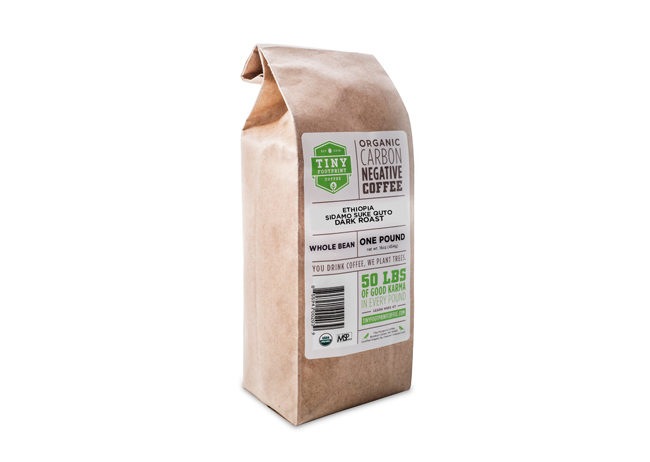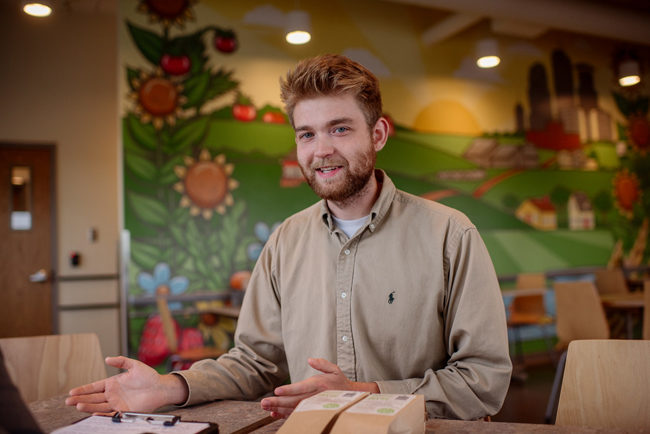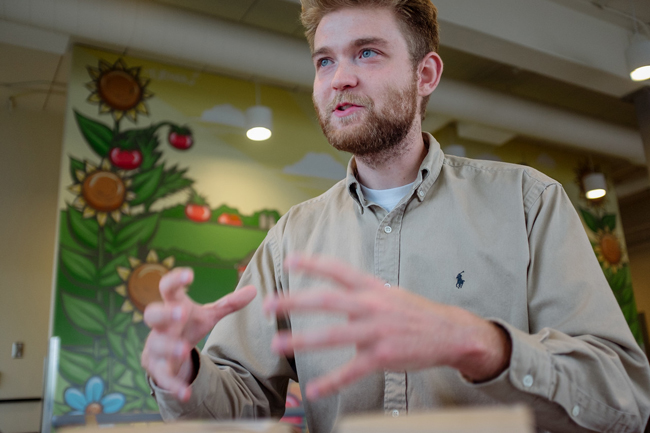
This story is a product of Heavy Table’s first Listening Session, underwritten and hosted by the Lakewinds Food Co-op. On May 23, we interviewed 15 local food artisans over the course of eight hours, with a goal of taking a snapshot of the vibrant Minnesota food scene.
One of the most interesting cups of coffee in the state comes from Africa by way of a small roaster located in Brooklyn Center. Tiny Footprint Coffee’s Sidamo Suke Quto is a rarity: a dark-roasted Ethiopian coffee that’s abundant in flavors many tasters would consider “brighter” while retaining a full body.

“Dark-roast Ethiopian coffee is one of the most unique things we do as a roaster,” says Thomas Hertzog of Tiny Footprint. “It’s a weird cup of coffee for people who drink it, and they’re often surprised by how much they enjoy it. Almost across the board, people light-roast Ethiopians because there’s a lot of fruit, and a lot of floral notes. But when you dark roast, and you do it well, you can have those dark red cherry, strawberry, raspberry flavors linger, but you can also get a full-bodied cup, which is the base of our clientele. It’s a fun way to introduce people used to a full-bodied cup of coffee to some of those brighter flavors.”
Tiny Footprint coffee was founded by brothers Alan and Brian Krohnke in 2010 with an eye to offsetting the carbon produced by the company’s importation and roasting processes. “Brian runs a foundation in Ecuador, the Mindo Cloudforest Foundation, which is headquartered in Mindo,” says Hertzog. “He had a Belgian university come in and certify his reforestation program and figure out how much carbon dioxide his trees were going to sequester over the life of those trees, and then [he] took those numbers and matched them with the numbers Alan had come up with for the roasting facility, down to the pound of coffee, and offset it down to the pound marker.” Four pounds of carbon dioxide is produced for each pound of Tiny Footprint coffee, but the sale of that coffee allows the foundation to plant trees that will sequester more than 50 pounds of the gas.

